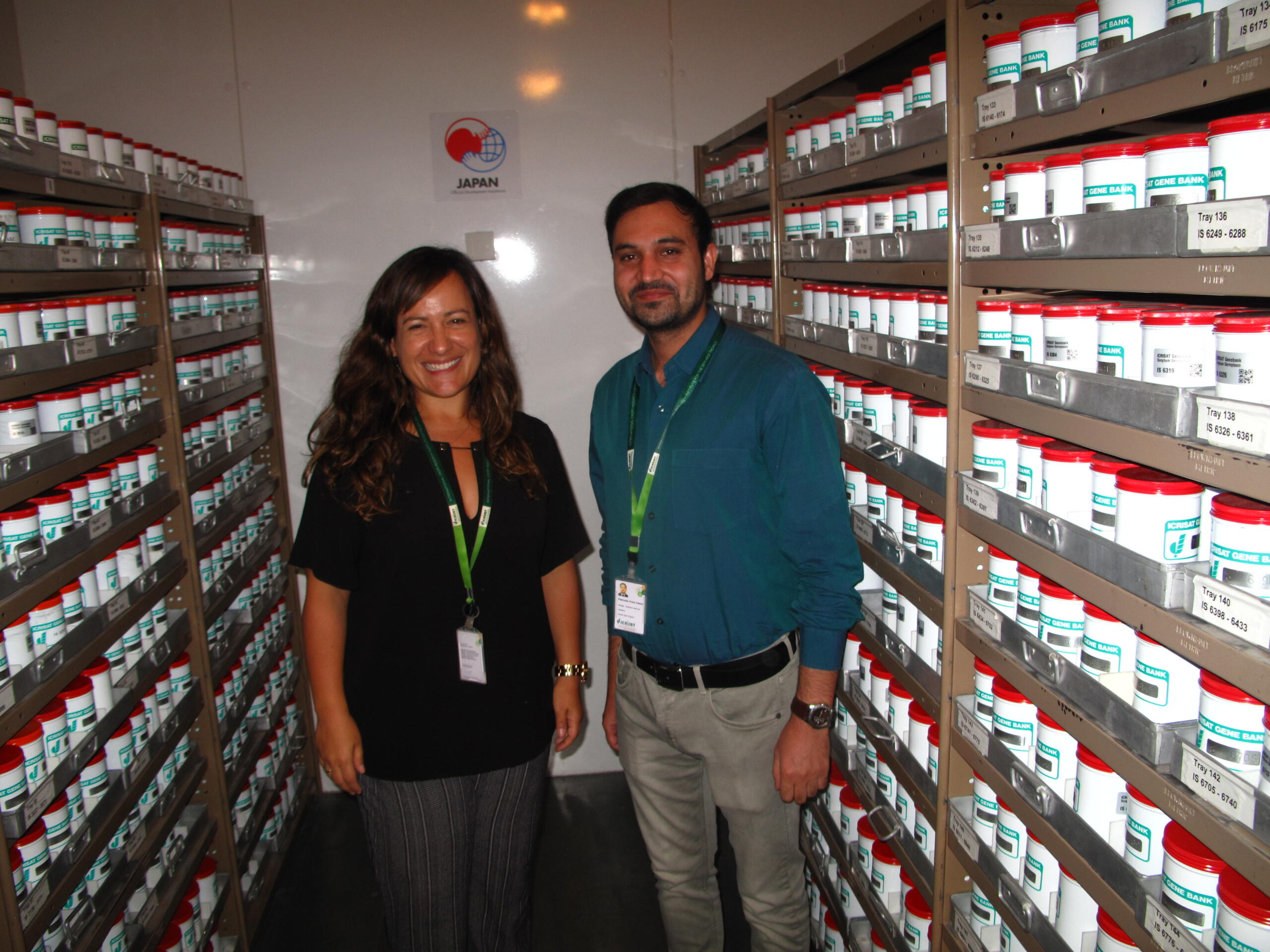
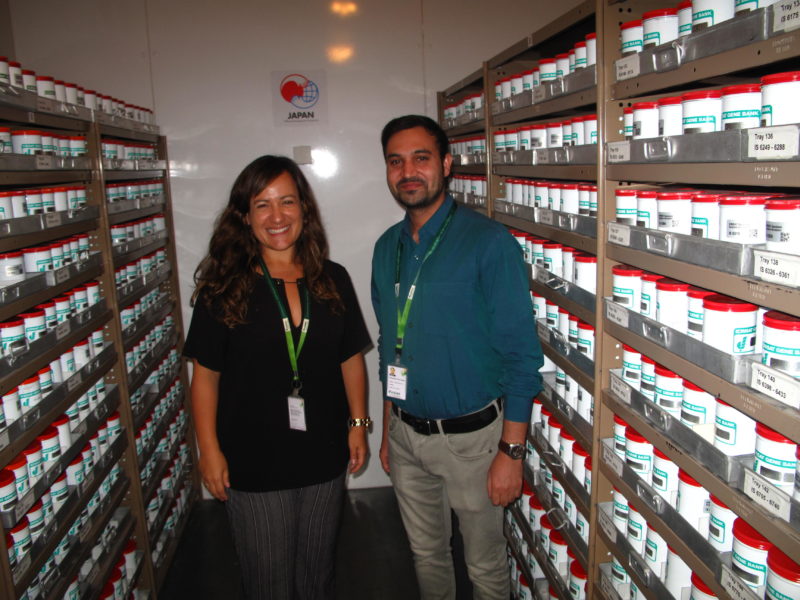
The International Crops Research Institute for the Semi-Arid Tropics (ICRISAT) has in particular six mandate crops that are emphasized within research, development, pre-breeding and gene bank activities. These are sorghum, finger millet and pearl millet as staple crops and chickpea, pigeon pea and groundnuts as protein crops. “These are robust and less demanding crops that have the potential to improve food supplies and nutrition in our part of the world“, Dr. Azevedo is explaining.
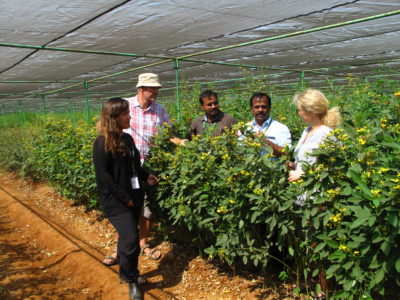
Examining seed longevity
The seed collections comprise in total approximately 126,000 accessions. At the moment 111,173 accessions out of these are duplicated in the Seed Vault. ICRISAT is one of quite few Seed Vault depositor gene banks that in addition to regular duplicates, has deposited test samples for monitoring the longevity of own seeds in the Seed Vault. “We think it would be useful to continue and if possible, extend the examining of seed longevity in cooperation with the Svalbard Global Seed Vault”, says Dr. Azevedo.
By the end of 2018, representatives from NordGen and the Svalbard Global Seed Vault were welcomed at the huge ICRISAT campus in Patancheru outside Hyderabad in India. “This is the best region for agriculture and food production in India”, explains Dr. Muri M. Sharma, who has been employed at ICRISAT during 40 of the 45 years since ICRISAT was established in Patancheru. Overcoming poverty and hunger, reducing malnutrition and preventing environmental degradation, are the main ICRISAT objectives that also are manifested in separate R&D programs.
Centre of Excellence in Genomics
NordGen received comprehensive information about several of the ICRISAT departments and programs, among these the Centre of Excellence in Genomics (CEGSB) and Genetic Gains department, headed by Research Program Director Dr. Rajeev K. Varshney. The centre is very well equipped, conducts projects within genomics and molecular methods that are supportive to other ICRISAT R&D activities and is active in national Indian and international cooperation.
Dr. Varshney was recently awarded with the American Society of Agronomy prestigious fellowship. Genomic resources, tools and technologies developed by CEGSB in collaboration with several international partners have been successfully utilized in developing superior lines through molecular breeding products, not only at ICRISAT but also at several other institutes.
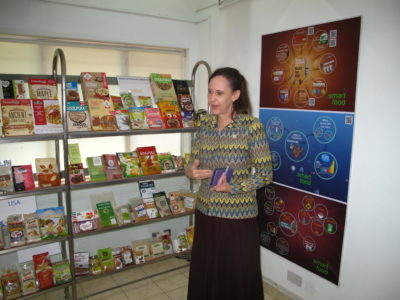
Smart food good for all
Another prosperous initiative is the ICRISAT Smart Food project. Under the slogan “Good for you, good for the globe and good for the farmer” the project is in particular promoting increased production and consumption of sorghum and millets. “These are hardy, nutritious, less water and fertilizer demanding plants and they have few serious pests”, says Dr Joanna Kane-Potaka, Assistant Director General at ICRISAT.
“We believe that these plants have the potential to significantly increase food supplies in semi-arid parts of the world”, she explains. The project is looking at all parts of the food chain, from selecting good varieties and seed supplies, through farming, trade and marketing systems to development of new food products.
Huge campus
The International Crops Research Institute for the Semi-Arid Tropics (ICRISAT) is one of the 15 CGIAR centres (the Consultative Group for International Agricultural Research). Other centres holding large gene bank collections and being major depositors of seeds to the Svalbard Global Seed Vault are ICARDA, IRRI, CIMMYT, IITA, CIAT, CIP, ILRI, ICRAF and Africa Rice Centre.
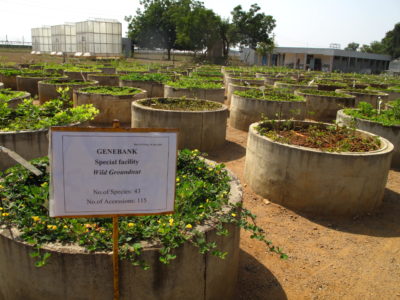
On its huge campus of about 1400 hectares, that even contain more lakes and an extensive bird-life, ICRISAT is also hosting departments and field trials for other agricultural research institutes, e.g. World Vegetable Center, CIMMYT, IRRI, ILRI and the Indian Centre for Agricultural Research (ICAR) in Dehli. ICRISAT itself has departments in several African countries, as Mali, Niger, Nigeria, Kenya, Malawi, Zimbabwe and Ethiopia.
